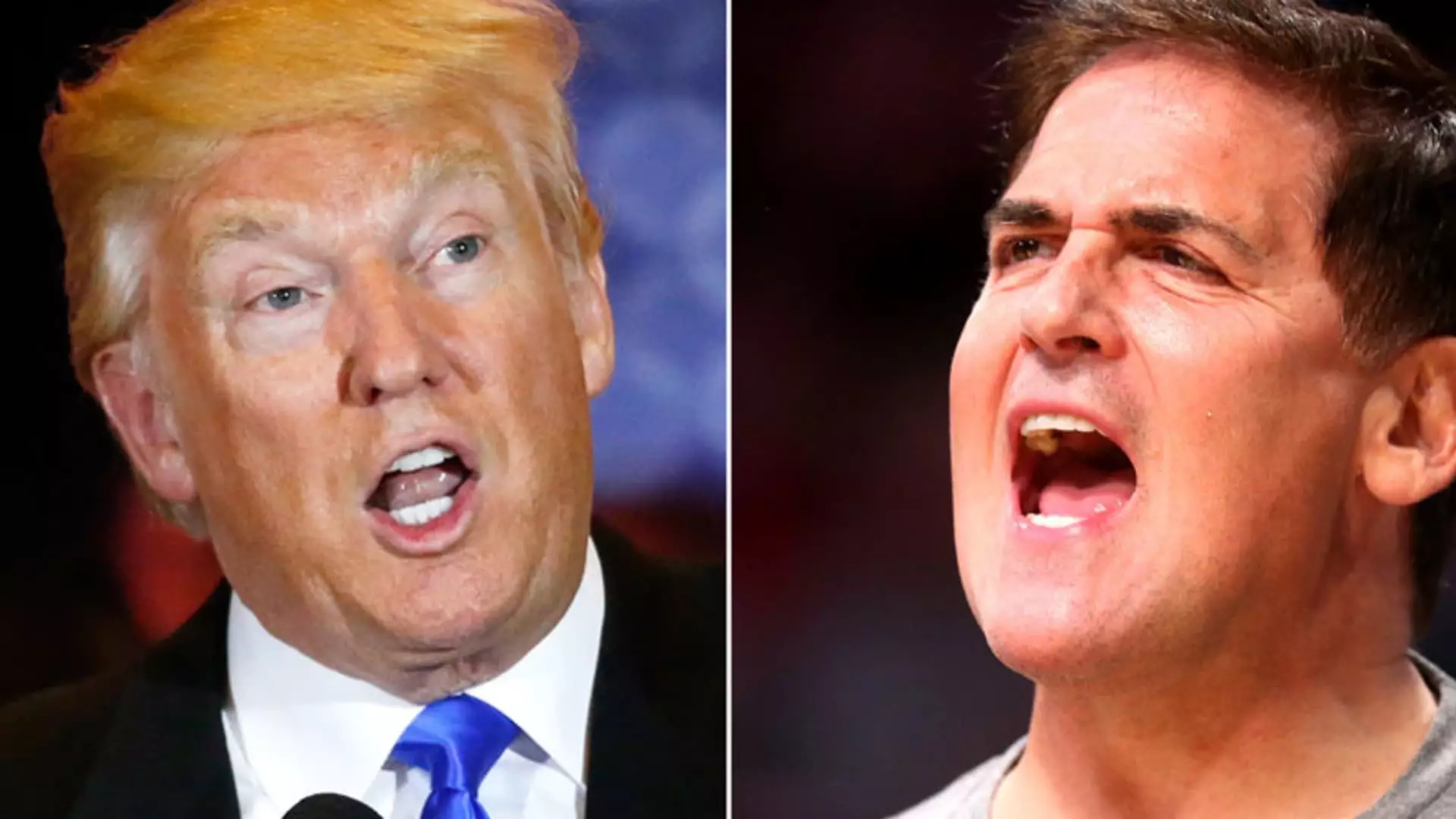The political landscape in the United States continues to evolve, and the high-profile conflict between former President Donald Trump and billionaire Mark Cuban serves as a captivating illustration of this shift. A recent diatribe from Trump on Truth Social condemned Cuban, labeling him a “Loser” and critiquing his athletic ability, a drastic shift from their earlier camaraderie in 2015 when Cuban lauded Trump for revitalizing political discourse. This transformation from public allies to antagonistic rivals exemplifies the often-unpredictable nature of relationships in the political sphere, especially among influential figures.
Trump’s harsh rhetoric came on the heels of Cuban’s pointed criticisms at a campaign rally for Vice President Kamala Harris, where he questioned Trump’s understanding of economic issues such as tariffs. Cuban slyly remarked that Trump believes that China bears the cost of his proposed tariffs, a move which underscores the billionaire’s shift towards an active role in Harris’s campaign. Cuban’s snide remarks highlight a broader critique within the political realm regarding economic policies proposed by Trump, particularly his suggested 20% tariff on all imports and a staggering 60% on Chinese goods. Critics argue that such approaches may ultimately harm American consumers and businesses rather than provide the anticipated relief.
This contentious exchange starkly contrasts earlier interactions between the two billionaires. Initially seen as political allies, Cuban and Trump shared mutual admiration during the 2016 election cycle. However, after Cuban endorsed Hillary Clinton, their relationship soured significantly. The path from mutual respect to open hostility sheds light on the complex dynamics that govern personal relationships amidst the pressures and stakes of high-stakes politics. Each man now represents opposing factions within the public eye—Cuban as a supporter of Harris and Trump leading the Republican agenda—revealing how quickly alignments can shift based on political motivations.
As the upcoming election draws nearer, the implications of this feud are significant. Cuban’s decision to openly support Harris positions him as a prominent figure advocating for a Democratic economic stance, likely aiming to attract other business-minded voters. On the flip side, Trump’s endorsement of tech billionaire Elon Musk adds another layer of intrigue to his campaign, hinting at a battle not just between parties but also among billionaires who shape public policy narratives. This rivalry is emblematic of a broader trend wherein influential entrepreneurs leverage their wealth and status to influence political outcomes.
In the end, the ongoing feud between Trump and Cuban is not merely a spectacle of personal grievances; it is indicative of the broader ideological battle shaping the American political landscape today. As disagreements over economic policy and political endorsements intensify, their conflict may resonate with voters who are increasingly wary of political antics driven by personal motivations rather than substantive policy discussions. This raises critical questions about the future relationships between wealth, politics, and governance in an era desperately seeking leadership and clarity.


Leave a Reply